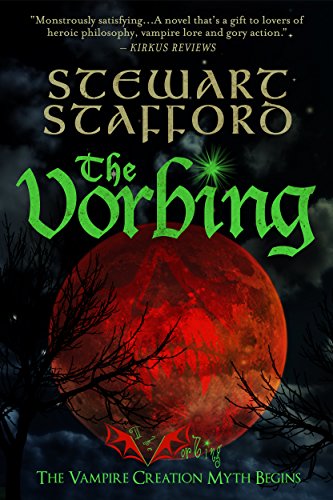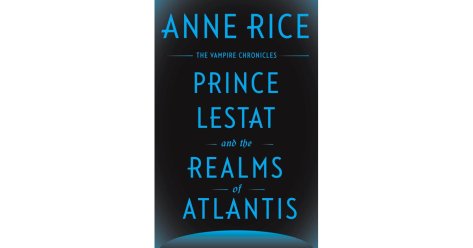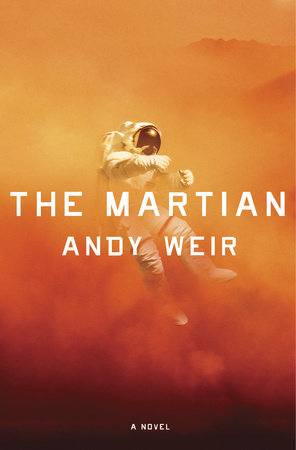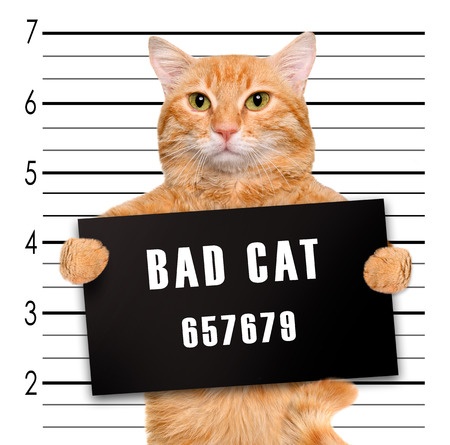I’ve published a scary short story on Wattpad set in Dublin titled “Nightfall.” You can read it here: https://www.wattpad.com/523641592-nightfall-the-shadows-gather
Category Archives: Reading
Story: In The Beginning…
Where do you start your story? A key question and one of hundreds if not thousands to be answered when writing and publishing a book. Do you start when your character is born or before? When they are a child? A teenager? An adult? When they get married? When they are old? Do you start at the point of death or after and tell the story in flashback?
If you were telling the story of your life, where would you choose to start and why? Looking at your characters in the same way and treating their lives as real can be hugely beneficial. When you start treating them seriously, they become more realistic to you and hopefully your readers.
When a potential reader opens your book, how do you pique their interest? Your first sentence is crucial. The point you choose to start the story will determine that first sentence. The whole structure is like a line of dominoes (no, not the pizza place); set the first one right and the rest should stand. Get it wrong and they all could topple.


It took me many years to publish my book The Vorbing and, during that time, I wrote many different versions of it. I went through a city map of blind alleys but it taught me what worked and didn’t work each time and sharpened the story. When the time came to pull all the strands together, I could use all the best bits from all the various drafts to come up with a kind of “greatest hits” version of the story. All those ideas gave the whole thing a fast pace and fresh perspective. I won’t have that luxury on book two, but such is the challenge of writing.
This is where a fresh pair of (preferably experienced) eyes on your work can pinpoint a loss of initial focus. Even if you need to lose earlier material, you can use it later in the story or in a sequel or even just as backstory to help you know your characters better. No piece of writing is ever really wasted. You can cannibalize it later or even combine bits to create a new story (Anne Rice was writing a book set in Atlantis and hit a dead end, so she put her vampire Lestat into the mix and, hey presto, got a new Vampire Chronicles book out of it – Prince Lestat and the Realms of Atlantis.)

That old cliche “you never get a second chance to make a first impression” is doubly true for writers, especially in the internet age. If someone is viewing a preview of your book using the “Look Inside” option on Amazon, that mouse button is right at their fingertips and they are ready to click off if you fail to hook them. So think carefully about that first sentence. Be original. Be surprising, but be true to your characters, your story and yourself above all.
© Stewart Stafford, 2016. All rights reserved.
Imagination Vs Technology – The Writer’s 21st-Century Faustian Pact?

Imaginary things take time to write. Fantasy and horror and, to a lesser extent, science fiction can be among the toughest genres to write as they are works of pure imagination. Science fiction can be slightly researched and current trends can be followed to their logical conclusion. Educated guesses can be made as to what direction science will go in. Fantasy and horror mostly comprise world-building from scratch and, depending on the writer, the concepts can take time to generate.
Added to that, readers want new product yesterday. They’ve become ultra-impatient in the internet age. Some of them even refuse to read the first book in a series as they are unable to wait for the other books to be written and published. “Am I going to have to wait years for you to finish your Vorbing trilogy? I’m an impatient bitch,” one of my readers helpfully explained to me.
In their book, The Neuroscience of Clinical Psychiatry: The Pathophysiology of Behavior and Mental Illness, Edmund S. Higgins and Mark S. George note: “People who can delay gratification and control their impulses appear to achieve more in the long run. Attention and impulsivity are opposite sides of the same coin.” This is especially true of all those internet babies who have grown up in the technological age. So the internet is a bit like Brexit; we don’t know what the full implications of its arrival are yet.

The web has its advantages. It’s a phenomenal communication tool. Twitter has definitely made me think faster and streamline messages better, that is certain. As a way of quickly disseminating a message or a product worldwide immediately, the web takes some beating. The net is like a giant synthetic brain our thought patterns are connected to (a strength and a weakness that can be exploited). There are concerns over privacy and who is doing what with our data and those worries will only increase as time goes on.
Back to the writing. This awareness of the disintegration of attention spans has unquestionably changed both the method and style I employ when writing books. I started writing my first book when the internet was in its infancy. I was able to remain in the world I had created all day interacting with my characters. I was totally immersed in it and wouldn’t notice hours passing. Now social media, that great thief of time, eats up chunks of my day without me noticing hours passing. I mostly interact online with people I don’t know instead of my characters. I’m totally immersed in the internet. Writing is done now in feverish bursts to meet my daily word count so I can get back online. Experience has enabled me to do much more in less time though. I no longer need to spend all day going down blind alleys trying to find myself creatively. So perhaps there is no damage done there.
There are writers who have given up social media for a month to get books out there. I’d be concerned about losing half my hard-earned followers. You can’t expect people to continue following you if you’re offline for weeks. Especially if you’re a self-published writer dependent on social media to market your books. It appears to be a 21st-century Faustian pact with the web.
Then there is the pace of the novel itself. I am only too aware that if you fail to hold the attention of your readers, social media is tickling their ears non-stop to woo them away. So they’re dealing with getting their electronic fix too (especially if they’re consuming your book on an e-reader or smartphone app that’s connected to the internet and the ejector seat button for your novel is half an inch away). The pacing of a novel has to match the online frenzy going on out there or you’re toast. Then again, if the flour is going rotten to begin with, maybe the quality of the toast isn’t so important these days. We shall see.
So the internet has rewired our brains, changed our expectations and how books are written, edited, sold and read (or not as the case may be). What form will books take in 2026? 2036? 2066? Will we be taking downloads directly into our brains as in a William Gibson cyberpunk novel? I have a saying: “The possible is just the impossible that we’ve come to accept.” It will happen.
My novel “The Vorbing” is available here
© Stewart Stafford, 2016. All rights reserved.
Indie Authors: The New Punks

We’ve all heard about the self-publishing revolution in books in the last few years with Amazon Kindle and all the other e-readers and websites. I was watching a BBC documentary called ArtsNight last week and the presenter made an interesting point: punk rock bands were the first indie authors. They learned their three chords, set up their own bands and, in some cases, record labels and self-published their own music. They took control of their own destinies in the same way novelists did recently. Even the punk fanzines were do-it-yourself wonders; stapled together, photocopied and distributed through record stores, mailing lists, by hand and by word-of-mouth in those pre-pre-internet days.
It’s a very cogent analogy. As with the self-published books, some of the DIY punk music that was put out was awful, but some of it has reached classic status in hindsight. Self-publishing until recently was called “vanity publishing,” but writers were no longer prepared to sit on their hands waiting months for a form rejection letter. They too seized their own destinies through the technology that was around them and turned the publishing industry on its head.

Movies are even being made from self-published books for the first time like Ridley Scott’s The Martian starring Matt Damon and a future fantasy film that 20th Century Fox has purchased the rights to called Fall of Gods (even after that movie deal was signed, the book was taken down from Amazon due to formatting issues, the bane of indie authors everywhere. Luckily, it didn’t impact on the movie deal and Fox could see the merit of what was there despite the flaws.)

Punks and indie authors are strange bedfellows indeed, but both groups were and are pioneers in their fields. While the punk movement didn’t manage to overthrow the mainstream in the same way hippies in the previous generation hadn’t, they democratised their art form and showed others what was possible with self-belief and a little effort. Just as indie authors did. The shockwaves of the indie author revolution are still spreading out from the epicentre and nobody really knows where it will stop or what comes next. The most important thing is that books that would have gathered dust in drawers and on hard drives and memory sticks are now finding a worldwide audience. That can only be a good thing.
© Stewart Stafford, 2016. All rights reserved.
The Paper Tablet – Setting Your Writing In Stone
Writers in the 21st Century think they’re so sophisticated in the way they can store, transport and transmit stories. We worship at the altar of electronic technology. However, hard drives can fail. Memory sticks can get damaged, lost or stolen.

Take my case, for example. Although I didn’t know it at the time, my cat Ginger was going blind. He thought he was in his litter box but was actually squatting over my memory sticks which had fallen onto the ground. He peed on them and wiped 8 gigabytes of data on me, a huge amount for those who don’t know what that means. The acid in his urine corroded and rusted the metal tips of the memory sticks, making them unreadable. Although I had saved the contents of my prime memory stick to a back-up, the cat had managed to pee on both of them. Through that freak accident, I lost things I can never get back.

Similarly, I went away on holiday once. While I was gone, my sister decided to surprise me and clean up my place. She threw out a load of writing I had saved on disk, including about half a book’s worth of material. When I got back, I was shocked and not a little pissed off (we’re back to urine again, see a theme emerging here?). Luckily, she hadn’t thrown out a stack of hard copy printouts I’d done. I went through the pile, silently praying that my discarded work was there. It was and I breathed a massive sigh of relief. Now, I had to retype it all from scratch but the material wasn’t lost forever. I was able to retrieve it. You might think you can retype something verbatim from memory but every time you sit down to write, you make different choices. It’s never the same way twice. Retyping it all was actually a good way of revising what I’d done. I spotted some errors, fixed them and took the story in a different direction as result.
The point being, print out early drafts of your material as well as storing back-up copies separately from the primary source. If you’re blocked, reading what you’ve done so far gets you thinking. Even if the solution doesn’t present itself immediately, your mind is working on it. You may not find a way to progress the story ahead but, very often, you’ll see a way to link earlier sections of your book with new sequences. That all adds to the wordcount and gets you closer to completing your novel.
Yes, paper can be shredded or torn up but it’s far more difficult to do than wiping something electronically which can happen in an instant before you know it.
So there’s the writer’s life for you; sometimes we sabotage ourselves and sometimes it’s technology, those around us or even nature itself preventing us getting our work out there. (I wonder how many great books have been lost over the centuries in that way?) For all our perceived sophistication, you really can’t beat having that tangible paper copy in your hand. Some things never change.
© Stewart Stafford, 2016. All rights reserved.
5-Star Vampires
The latest 5-star review of my novel #TheVorbing hails it “a classic in the vampire genre” with “incredible imagination.” Get it here and see for yourself; getBook.at/TheVorbingAmazon
The Segregation of Shock
“Ah, good taste! What a dreadful thing! Taste is the enemy of creativeness” – Pablo Picasso
I have written a fantasy/horror novel about war with vampires called The Vorbing. It is hard to deal with either of those subjects without dealing with bloodshed. Yet, I have discovered, to my great surprise, that there is discrimination by book reviewers against books with “gore” (which they find “tacky” and on the same level as porn) and “extreme violence” (which they find “offensive.” That’s strange as fiction isn’t about real pain or suffering so there’s nothing to be offended by. It’s all make believe). They had better not read The Bible then or anything by Shakespeare.
In Act III, Scene VII of Shakespeare’s King Lear, the elderly Earl of Gloucester has his eyes gouged out by the Duke of Cornwall with the words: “Out, vile jelly! Where is thy lustre now?” Pretty graphic stuff but it perfectly illustrates the upside down nature of Lear’s kingdom once he mistakenly divides it up between his three daughters.
The crucifixion of Jesus in The Bible also has scenes of graphic torture followed by the slow death of Christ that follows. Again, this is deliberate to make the reader or the listener in church live every wound with Christ as he dies for our sins (or so The Bible says, believe or don’t believe what you want, dear readers).
Where did this ludicrous squeamishness appear from suddenly? Why are books being prejudged for their content without being given a fair chance?
“Don’t judge a book by its cover,” the old adage goes. Equally, don’t judge a book by its content until you’ve read it. If you dare to write extreme scenes, you are essentially barred from getting not just a fair review but ANY review. This is wrong on all levels. It is holding back writers that want to try new things and push boundaries. You don’t get great art by playing it safe but that is the message being sent out loud and clear by these reviewers. Conform and be unimaginative is their coda.
It is a form of censorship and all that entails (I always get images of Nazi book-burning in my head when I think of censorship) My old acting teacher told me never to censor myself as that’s when all the good stuff happens. She was and is right. I never have censored myself and I never will. Nor will I allow others to censor me either. The glorious freedom of writing is a beautiful thing that must never be stifled.
I am not saying be outrageous or controversial for the sake of it. That is petulant attention-seeking. Some writers are acutely aware that there are two ways to get your message out there – advertising (which costs money) and publicity (which is free). Being cynically controversial is the cheapest and fastest way to sell anything. The media and chattering classes see to that. I am saying take risks because your characters and their world take you there or demand that you do. Even if these lily-livered reviewers want you to water down your work, I say don’t. Why? I’ll give Shakespeare the final word: “To thine own self be true.” Amen.
© Stewart Stafford, 2015. All rights reserved.
In Pursuit of the Mighty Whoosh: The 21st Century Writer
Being a writer in the 21st century is like being the driver of a very jerkily-driven vehicle. You’ve dreamt up ideas, written them, shaped them, rewritten and edited them and published them. Then you have to switch hats and sell your work. Now you find yourself measuring your book’s merit and your own self-worth by reviews, ratings, rankings, likes, shares, follows, analytics and sales. If they rise, your confidence rockets with them. If they mysteriously drop, you become frozen with doubt. You can control your writing up to a point. After that, it’s up to readers, reviewers and bloggers to spread the word. You can’t make people buy something they don’t want no matter what social marketing gurus say (who are biased witnesses involved in the hard sell).
It is healthy to get away from that draining stuff for a while. Major writers have people to handle sales of their work. They have agents, managers and the might of publishing houses behind them with their huge advertising budgets and key media contacts. Self-published writers only have themselves and their savings to rely on. That only goes so far unless they have great connections or access to bigger sums of money. If not, they may have to accept defeat on their beloved project when the cash runs out.
Some people say make your own luck but if everyone could do that, we’d all be successful. Life is never that simple or easy. Luck is mostly being in the right place at the right time. The wind catches your sails and whoosh, you’re off. Nobody can plan for that. It just happens. Word of mouth is another way. A neglected work slowly begins to pick up. Sales rise, reviews become more plentiful and positive and you’ve caught the Mighty Whoosh again.
Being an author now is a marathon, not a sprint. The idea that you could hit the send button, publish your book and it would become an instant bestseller really is a fantasy. It will take many months, if not years, to build up a loyal readership and a solid body of work. There is even the possibility of posthumous recognition Van Gogh-style. To become rich and famous when you’re no longer around to enjoy it would be cruel but better late than never. At least your heirs may benefit from your delayed Mighty Whoosh.
© Stewart Stafford, 2015. All rights reserved.
Author Interview with Stewart Stafford
Tell us about yourself and how many books you have written.
I was born in New York City to Irish parents. My family moved back to Ireland when I was three years old. I’ve lived there ever since.
I appeared to have a natural gift for writing. The first school report card I got when I was five had just one comment at the end: “Stewart writes very interesting stories.”
I listened to my grandmother’s tales of the Banshee in her kitchen and was enthralled and terrified. It was direct exposure to Ireland’s Celtic storytelling tradition and I was hooked. I love the folktales, traditions and superstitions of Ireland, the country that gave the world the festival of Halloween and Dracula author Bram Stoker. I went on to do an Irish Folklore course in University College Dublin. I also have qualifications in Theatre Studies, Criminology and Social Media for Business.
The Vorbing is my debut novel. I have a plan to write five novels; three in the Vorbing Dubhtayl saga and two crime books.
What is the name of your latest book and what inspired it?
The Vorbing is my first book and a nightmare I had back in 1996 inspired it. I rushed to type it up before I forgot it (you always think you’ll remember these ideas later, but you never do. Get them down!) The short story that resulted became the first chapter of The Vorbing. 19 years later, it’s finally out there.
Do you have any unusual writing habits?
I don’t have a set wordcount goal that I must reach each day. I wait for inspiration to strike and write in feverish bursts. That way, what I’m writing is fresh and just sings off the page. Sometimes it can take weeks for ideas to start flowing, but I never panic and wait for it happen. Thankfully, it keeps happening. I don’t know how or where these ideas come from, I’m just grateful they appear.
What authors, or books have influenced you?
Joseph Campbell’s work on mythic structure was a definite influence. James Ellroy (L.A. Confidential) is my favourite fiction writer and Antony Beevor (Stalingrad) is my favourite non-fiction writer. I also admire Richard Matheson’s daring take on vampire lore with I Am Legend.
What are you working on now?
I’m working on the paperback version of The Vorbing and its sequel.
What is your best method or website when it comes to promoting your books?
This is all new to me, so I’m still trying to figure that one out. Online sales are the Holy Grail for writers and you’ll come across a zillion people promising you the earth, moon and stars. Everyone likes and shares my book posts on social media and wishes me luck but somehow that doesn’t translate into actual sales. If I could crack that one, I’d be on to something. Everyone that has read The Vorbing raved about it, so it’s frustrating that people won’t take a chance on a new writer. I’m hoping this will change.
Do you have any advice for new authors?
Finish your book no matter what. Don’t listen to negative people or your own doubts; keep going, get it done and get it out there. Never put something out that isn’t up to scratch. Get your work professionally edited. Believe me, there are mistakes in your writing that only others can spot.
What is the best advice you have ever heard?
Don’t listen to advice. Give yourself the freedom to make your own errors, it’s the only way you’ll learn.
What are you reading now?
How Star Wars Conquered the Universe: The Past, Present, and Future of a Multibillion Dollar Franchise by Chris Taylor
What’s next for you as a writer?
Vorbing II and III and then two crime books. That will be my five-novel plan completed. After that, there may be a Cold War black comedy or maybe I’ll give up writing, who knows. It depends on whether people want to read my work. Supply and demand.
If you were going to be stranded on a desert island and allowed to take 3 or 4 books with you what books would you bring?
The Year in Ireland by Kevin Danaher
The Writers Journey: Mythic Structure for Writers by Christopher Vogler and Michele Montez
Stalingrad by Antony Beevor
The Black Dahlia by James Ellroy
This interview first appeared on the Awesomegang website; http://awesomegang.com/stewart-stafford/
The Vorbing is available exclusively on Amazon Kindle here; http://www.amazon.com/Vorbing-Dubhtayl-Saga-Book-ebook/dp/B0162713PU/ref=sr_1_1








